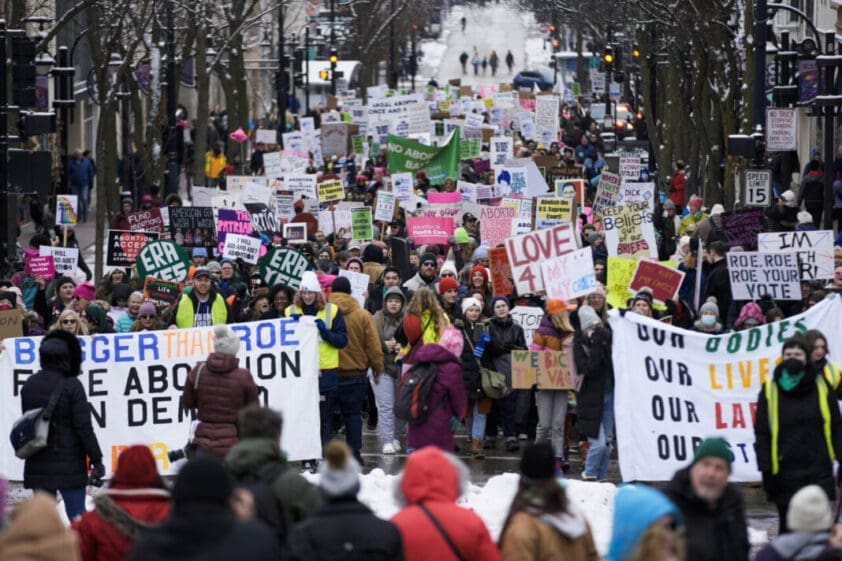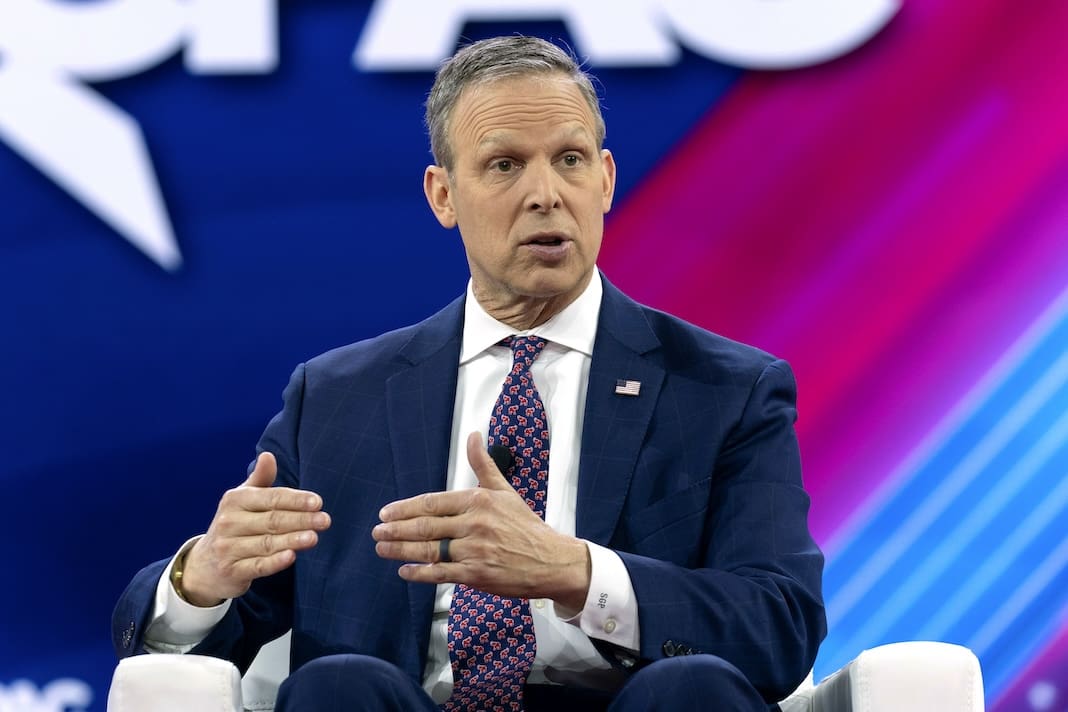Republicans said Virginia voters would find a 15-week abortion ban reasonable. Nope.
Republican Gov. Glenn Youngkin and his team hoped to frame Democrats who back reproductive rights as the real extremists.

In the lead-up to Tuesday’s legislative elections, Virginia Republican Gov. Glenn Youngkin and his team pitched a 15-week abortion ban as a reasonable compromise that could help the GOP win elections in their state and across the country. Voters in Virginia responded by giving the majorities in both the Senate and the House of Delegates to Democrats who ran on a promise to protect reproductive rights.
Youngkin, who said in 2022, “Any bill that comes to my desk I will sign happily and gleefully in order to protect life,” has been pushing for a 15-week ban with a few exceptions since taking office in 2022. Calling it a limit rather than a ban, he falsely framed Democrats as wanting to allow abortion up until the moment of birth. “I think this is one where Virginians come together around reasonableness,” he told ABC News on Nov. 5.
Youngkin’s leadership PAC spent $1.4 million on an ad using that framing, in which the narrator said: “Here’s the truth: There is no ban. Virginia Republicans support a reasonable 15-week limit with exceptions for rape, incest, and life of the mother. It’s a commonsense position that most Virginians support too. But Virginia Democrats support no limits on abortion. Reasonable limits or no limits at all? That’s the truth.”
Republican candidates in swing districts used the same strategy. Republican House of Delegates nominee Lee Peters falsely claimed at a September debate that 61% of Virginians wanted a 15-week ban. Republican state Sen. Siobhan Dunnavant incorrectly claimed on her campaign page that “Virginia law allows abortion until the moment of birth” and that a 15-week ban was “Not a ban, but legislation that reflects compassionate common sense.”
Both lost their races on Tuesday.
Polls showed little support for Youngkin’s 15-week ban or any new restrictions on abortion rights. A Washington Post-Schar School survey from March found just 17% of Virginia voters favored stricter abortion laws. Thirty-four percent backed keeping the current laws, and 41% favored making the laws less strict.
Still, Youngkin’s team told national media outlets that his ban was the way for Republicans to neutralize the abortion issue, which has been an albatross around the party’s neck since the U.S. Supreme Court overturned Roe v. Wade in its decision in Dobbs v. Jackson Women’s Health Organization in 2022.
Kaitlin Makuski, the political director of the anti-abortion group Susan B. Anthony Pro-Life America, told the New York Times in October that Youngkin’s plan was a model for the movement: “He and his team looked back at what they saw in 2022 and realized we can’t continue burying our head in the sand. We need to move forward. This is a great template to follow.”
But self-described Republican voter Nanette Mees told CNN on Monday she was backing Democratic nominee Russet Perry, who won a swing Northern Virginia Senate seat on Tuesday over Republican nominee Juan Pablo Segura. “Abortion and guns, those were the two for me,” she said.
An October focus group interviewed by Navigator Research found that voters in Virginia, Arizona, and Wisconsin simply did not believe the Republican claim that Democrats want “abortion up to the moment of birth.”
“I’ve heard that, but the thing I hear it from is the Republicans who are trying to promote getting rid of abortions,” said one Democratic Virginia woman participating in the discussion. “They’re the ones that say, well, these ladies are having these abortions at birth. No one’s had an abortion at birth.”
“I’ve heard it,” said a Republican Virginia woman. “My experience is that that isn’t true.”




